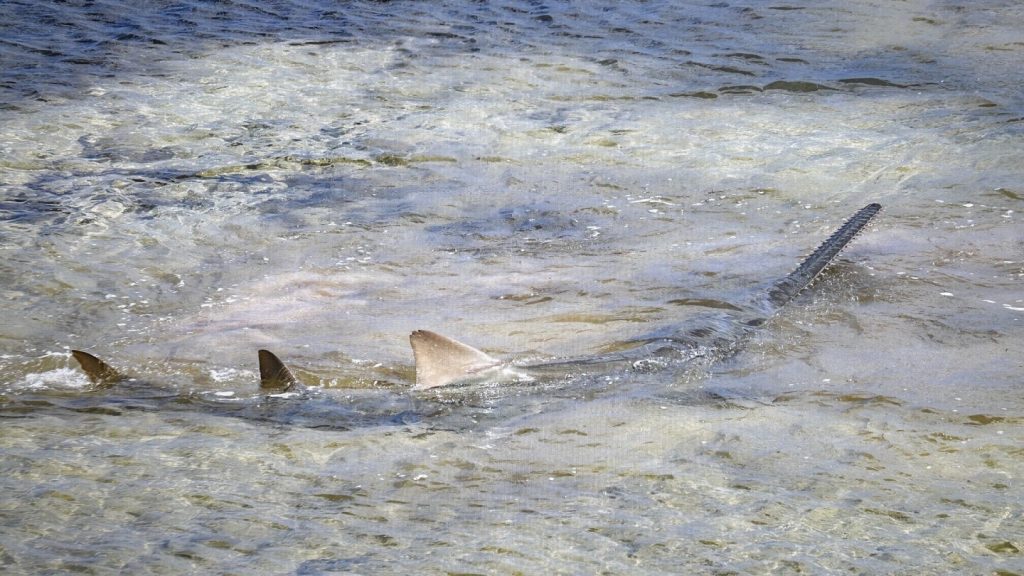The recent death of an endangered sawfish in Florida has raised concerns as wildlife officials work to determine the cause of distress among fish in the area. The 11-foot smalltooth sawfish was rescued last month off Cudjoe Key after it was observed swimming erratically and in circles. Despite efforts to rehabilitate the fish at the Mote Marine Laboratory & Aquarium in Sarasota, its condition deteriorated, leading to its humane euthanization. The facility is now planning a necropsy to investigate what may be affecting the fish, a process that could take several weeks or months to complete.
Sawfish, with their distinctive long snout and rows of teeth, were once widespread along the Gulf Coast and southern Atlantic coast of the U.S. However, their populations have declined significantly, with the current habitat limited to southwestern Florida and the Keys island chain. Recent necropsies on deceased sawfish have not revealed any specific pathogens, bacterial infections, or water quality issues such as low oxygen levels or contamination. Ongoing water testing is being conducted to further explore potential causes of the distress among the fish in the area. Climate change has been suggested as a possible factor, as rising water temperatures in Florida have led to other marine issues such as coral bleaching and the deaths of various marine species.
The abnormal fish die-off that has impacted sawfish in the Florida Keys is a cause for concern among wildlife officials and researchers. At least 45 sawfish, as well as other fish species, have been affected by this event, prompting efforts to investigate the root cause. The Mote Marine Laboratory & Aquarium, along with other agencies, are working to determine what is causing the distress among the fish and to implement measures to prevent further harm to the endangered species. The loss of the rescued sawfish underscores the urgency of identifying and addressing the issues facing marine life in the region.
Efforts to rehabilitate and release the rescued sawfish reflect the commitment of conservationists and wildlife officials to protect endangered species. Despite the unfortunate outcome in this case, researchers are continuing their work to understand the underlying factors contributing to the distress among fish in the Florida Keys. The loss of the sawfish serves as a reminder of the delicate balance of marine ecosystems and the need for proactive measures to safeguard vulnerable species. As investigations continue, experts are hopeful that valuable insights will be gained to inform conservation strategies and protect endangered marine life in the region.
The impact of climate change on marine ecosystems, including rising water temperatures and other environmental stressors, is a growing concern for researchers and conservationists. The recent events in the Florida Keys highlight the vulnerability of marine species to these changing conditions and the urgent need for action to mitigate their effects. As efforts to understand and address the distress among fish in the area progress, collaborative initiatives involving scientific research, conservation measures, and public awareness campaigns are essential to safeguarding the future of marine life. The tragic death of the sawfish serves as a stark reminder of the challenges facing endangered species and the importance of ongoing efforts to protect their habitats and ensure their survival in an ever-changing environment.


